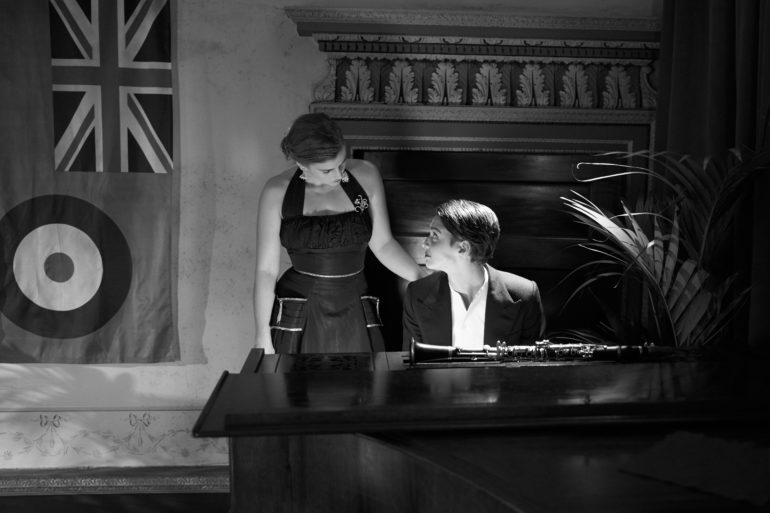The found footage genre is nothing new to our screens, an initially inventive way of disguising a meagre budget or injecting pace and energy into a story. It quickly became a staple tool of indie filmmakers, in particular for horror movies where a first-person perspective could elevate a building sense of dread if used effectively. The problem was it very quickly became overworked and tired, more often used to hide plot holes rather than further a story.
LOLA, an intelligent and curious new sci-fi from writer/director Andrew Legge takes the found footage concept and very smartly gives it a low-fi and authentic feel. Also weaving the concept of time travel into a sharp and intuitive script, LOLA tells the story of sisters Thomasina and Martha Hanbury, played by Stefanie Martini and Emma Appleton, who invent a machine in 1940s England that lets the user read radio waves from the future, giving them visual and audio glimpses of events that haven’t happened yet. The implications quickly become apparent to them – their machine can be used to turn the tide of World War II.
With a grainy monochrome handheld camera documenting their experiment’s progress, as well as the personal lives of the sisters, it isn’t long before a cascading set of consequences overtake them and the film gathers steam as the sisters find themselves in a race against time of their own making.
Entertaining and wickedly smart, LOLA manages to sidestep many of the usual time travel conundrums when it comes to the timeline of events, thanks to a wonderfully innovative narrative from writers Angeli Macfarlane and Andrew Legge. LOLA stays focused as much on the relationship between the sisters and a British intelligence officer as it does on the moral and ethical questions that arise as they gaze further and further into the future with their machine. The film’s grounded approach to science fiction draws comparisons with the likes of Primer and Pi while snippets of influential music and its own wonderful score from Neil Hannon give it a retro vibe that marries brilliantly with the story.

